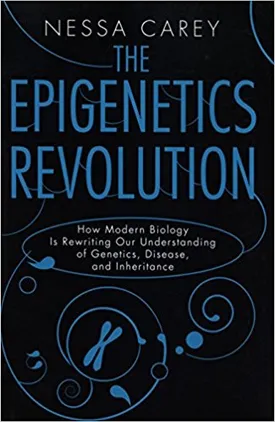The Epigenetics Revolution: How Modern Biology Is Rewriting Our Understanding of Genetics, Disease, and Inheritance by Nessa Carey
The Epigenetics Revolution: How Modern Biology Is Rewriting Our Understanding of Genetics, Disease, and Inheritance is big change in perspective authored by Nessa Carey. In this book, Carey discusses the significant advancements in epigenetics, the study of processes that alter gene expression without changing our underlying genetic code. She explains that this field of science is quickly gaining momentum and that much of what we believed we knew about genetics, disease, and inheritance is being rewritten.
In the Epigenetics Revolution, Carey reviews the advances in our understanding of genetics that have been made through epigenetics and explains the basic concepts. She begins by discussing DNA, genes, and genetics, highlighting the differences between them and how mutations can lead to diseases. She then introduces the concept of epigenetics, how it affects gene expression, and why it is so important to our understanding of genetics today. She shows how epigenetic signals can be passed down from parent to offspring and how diseases are being redefined in terms of their epigenetic associations.
The Epigenetics Revolution also addresses how epigenetic changes represent potential pathways for future treatment of genetic diseases, including cancer. Carey emphasizes the importance of lifestyle and environmental factors in epigenetic regulation. She further explains how these epigenetic changes can influence our longevity and how modern medicine may be able to use this increased understanding of human biology to make significant medical breakthroughs.
Throughout the book, Carey also reviews the latest research and discoveries across a wide range of topics, such as the links between epigenetics and mental health. She examines the importance of diet and exercise in influencing epigenetic patterns and explores how various lifestyle choices, such as smoking or the use of prescription medication, can alter DNA expression. And she emphasizes the need for more research and study into these topics in order to refine our understanding of genetic information and its implications on health outcomes.
The Epigenetics Revolution provides a comprehensive overview of our rapidly expanding understanding of genetics, and how this applies to illness, inheritance, and even aging. Carey explains how modern biology is rewriting our understanding of how our DNA works, with potentially profound implications for the future of medicine. By providing a comprehensive overview of epigenetics and its potential to revolutionize medicine and our understanding of genetics, The Epigenetics Revolution is an essential guide for anyone who wants to explore this exciting field of research.

